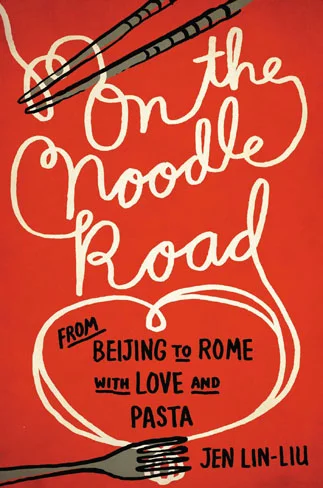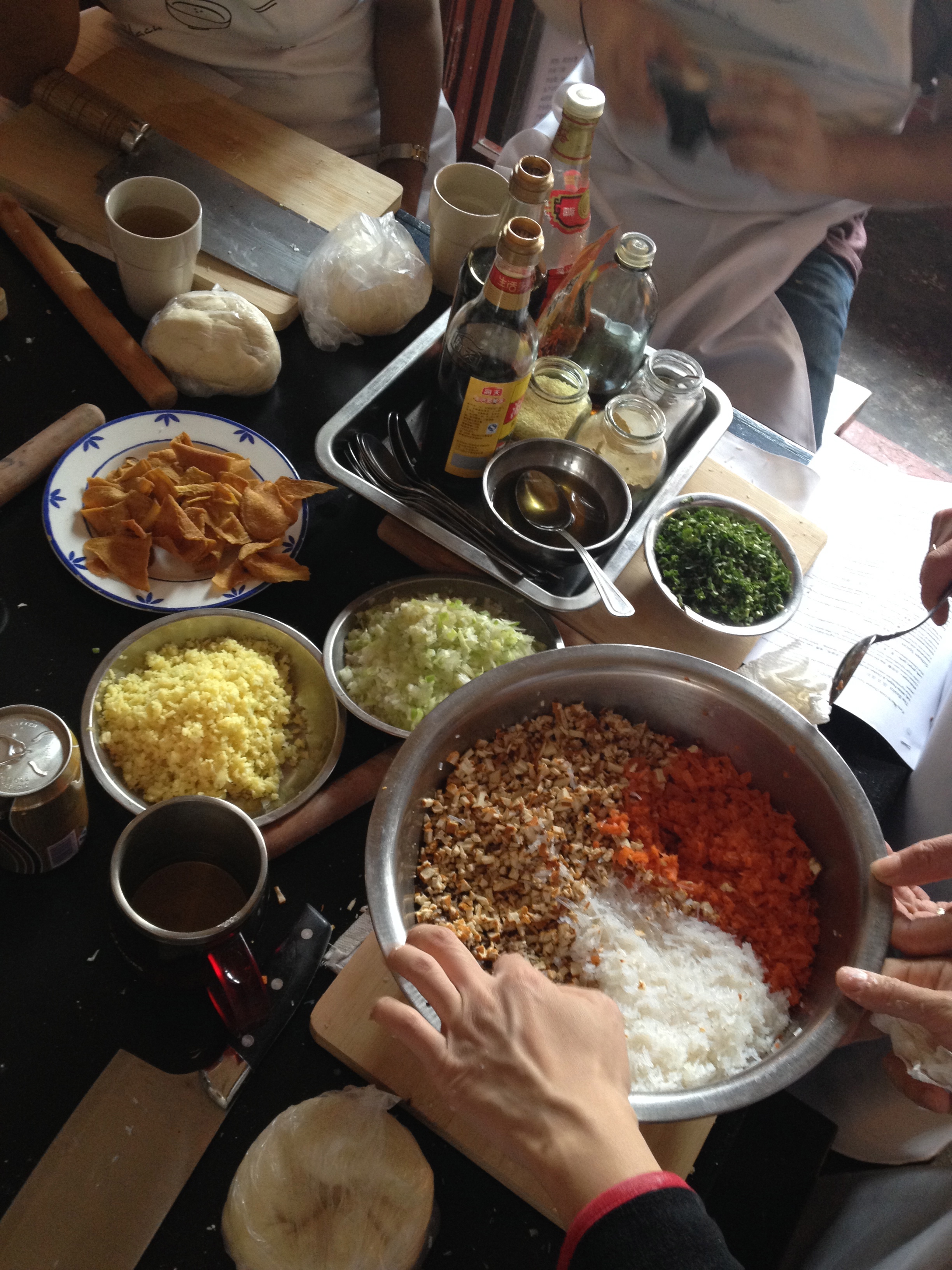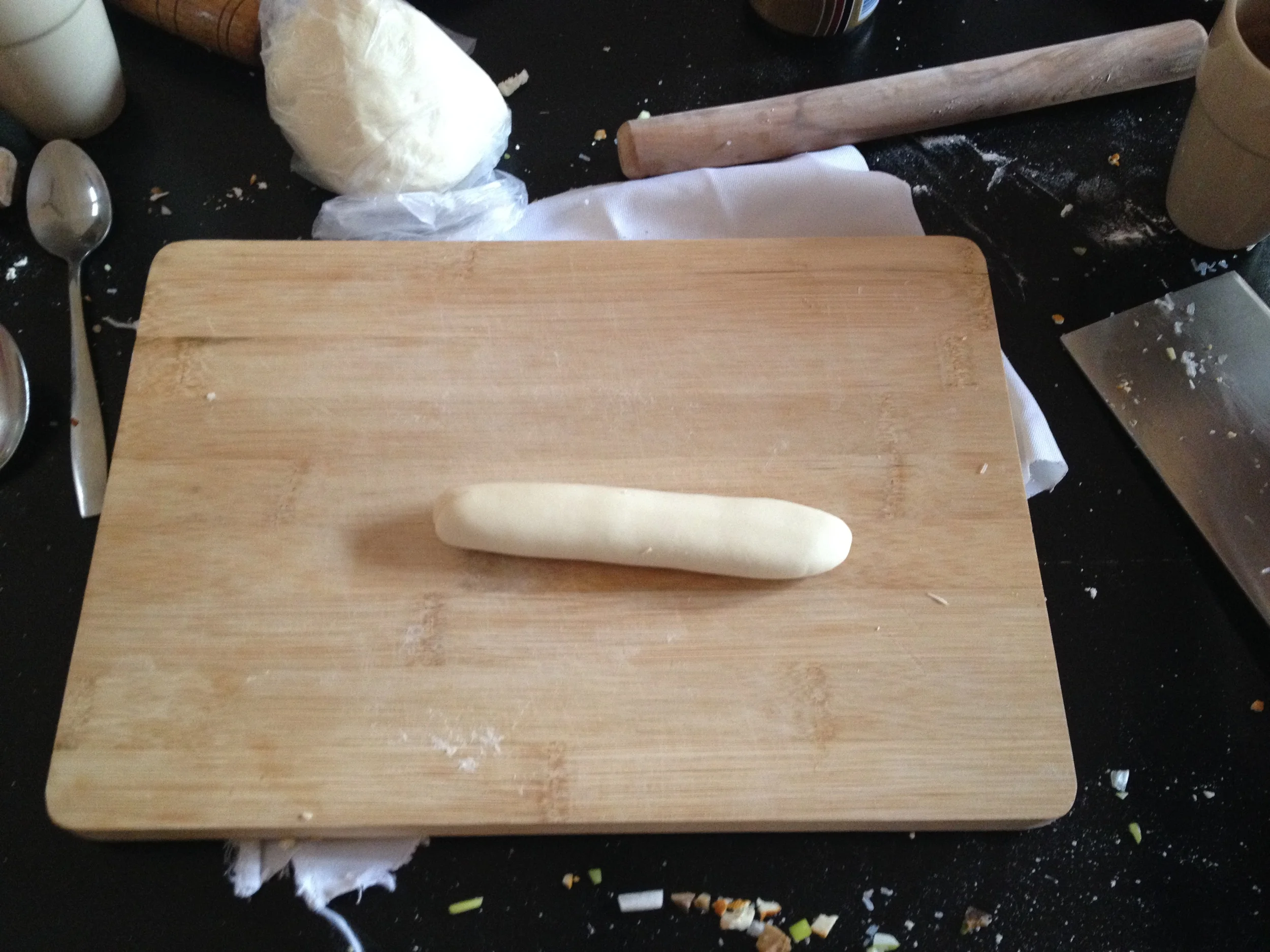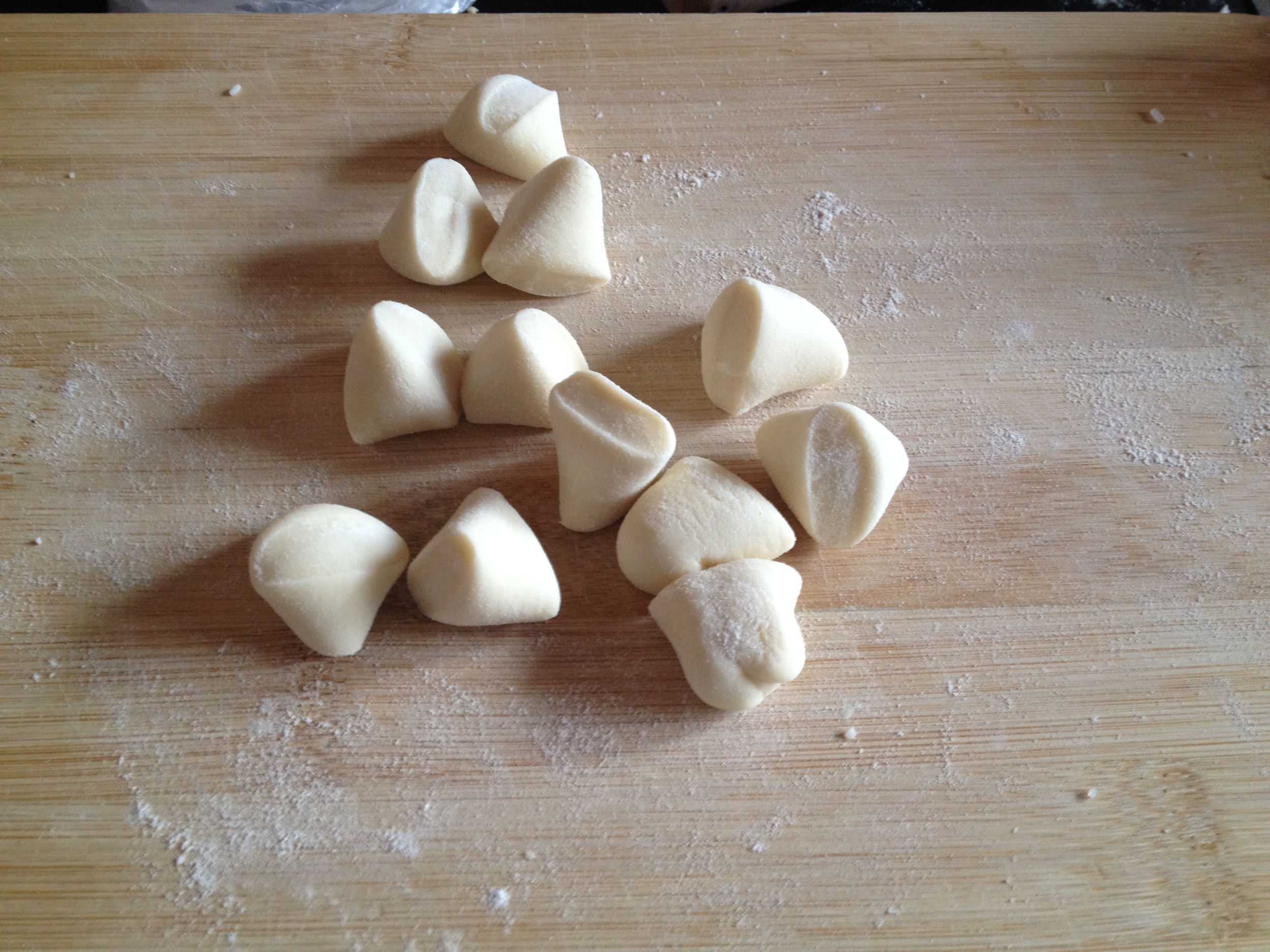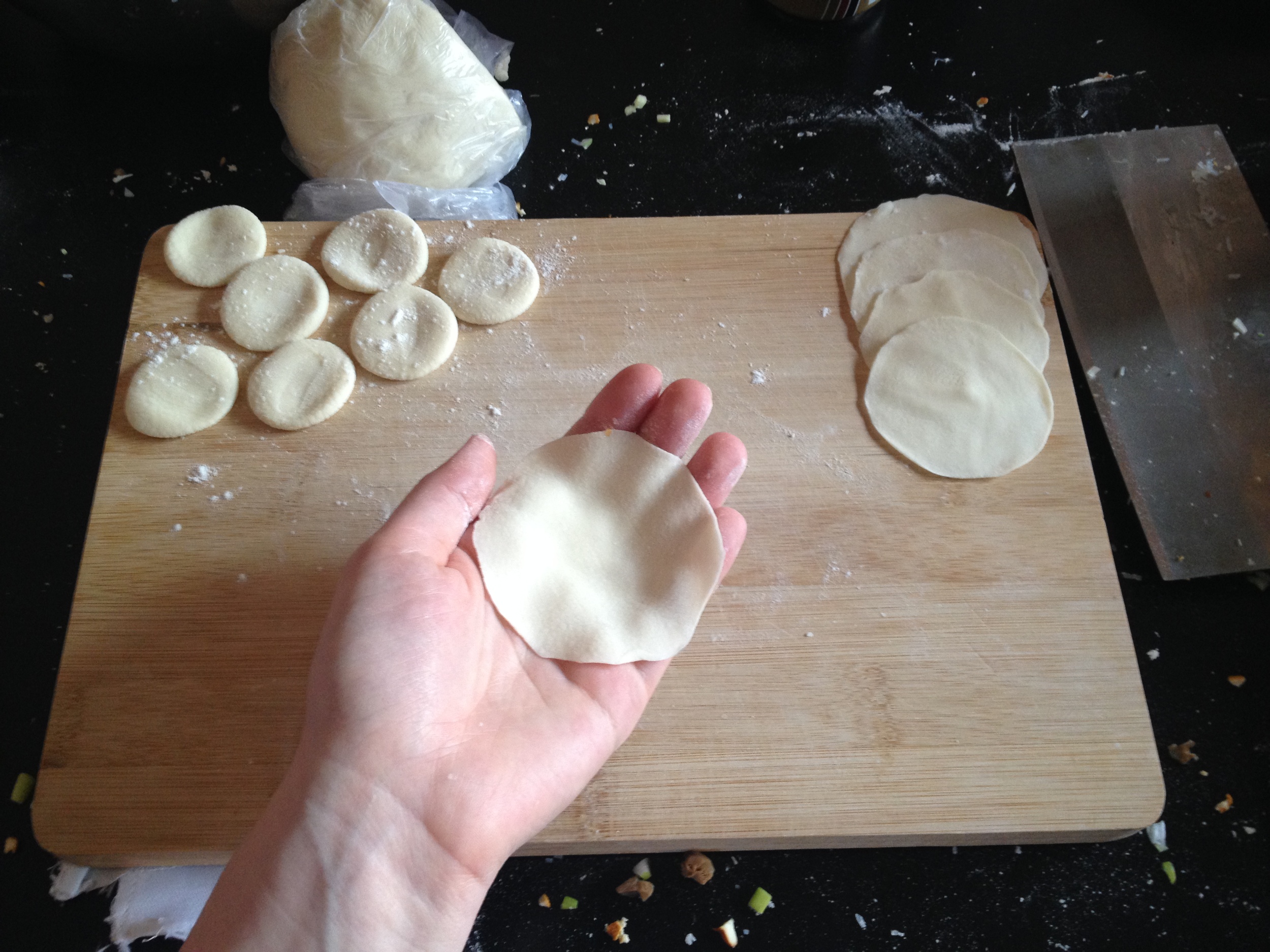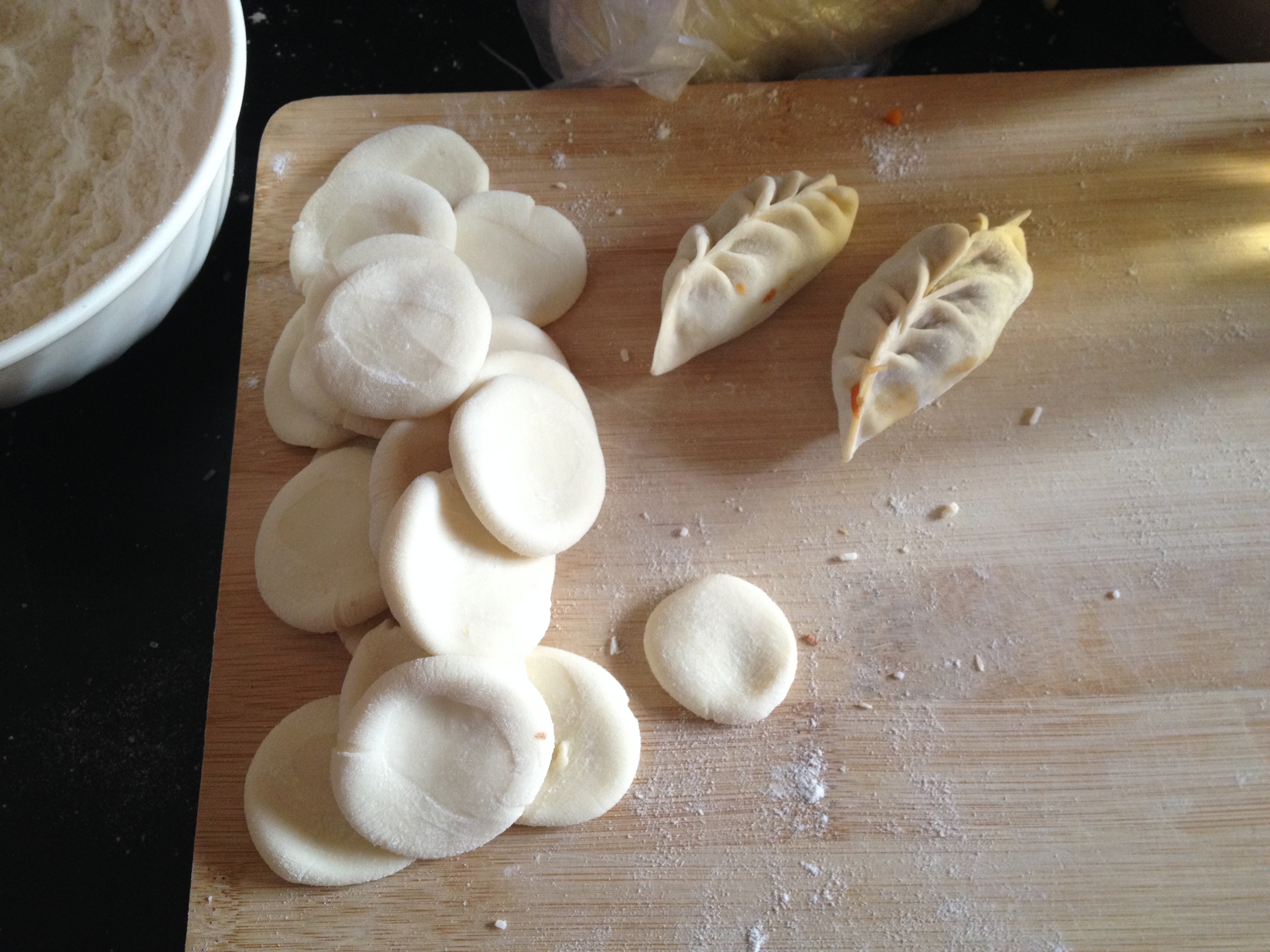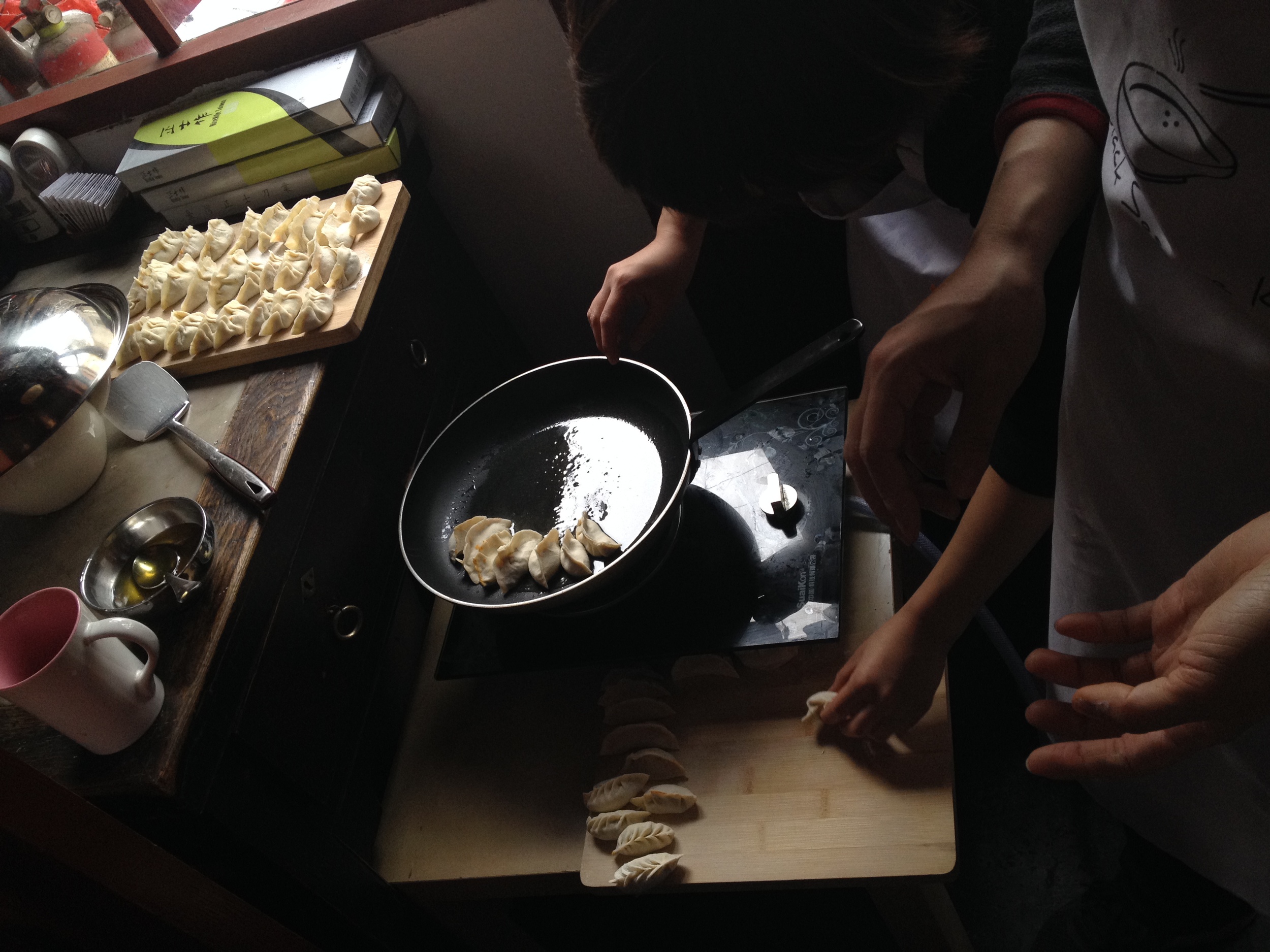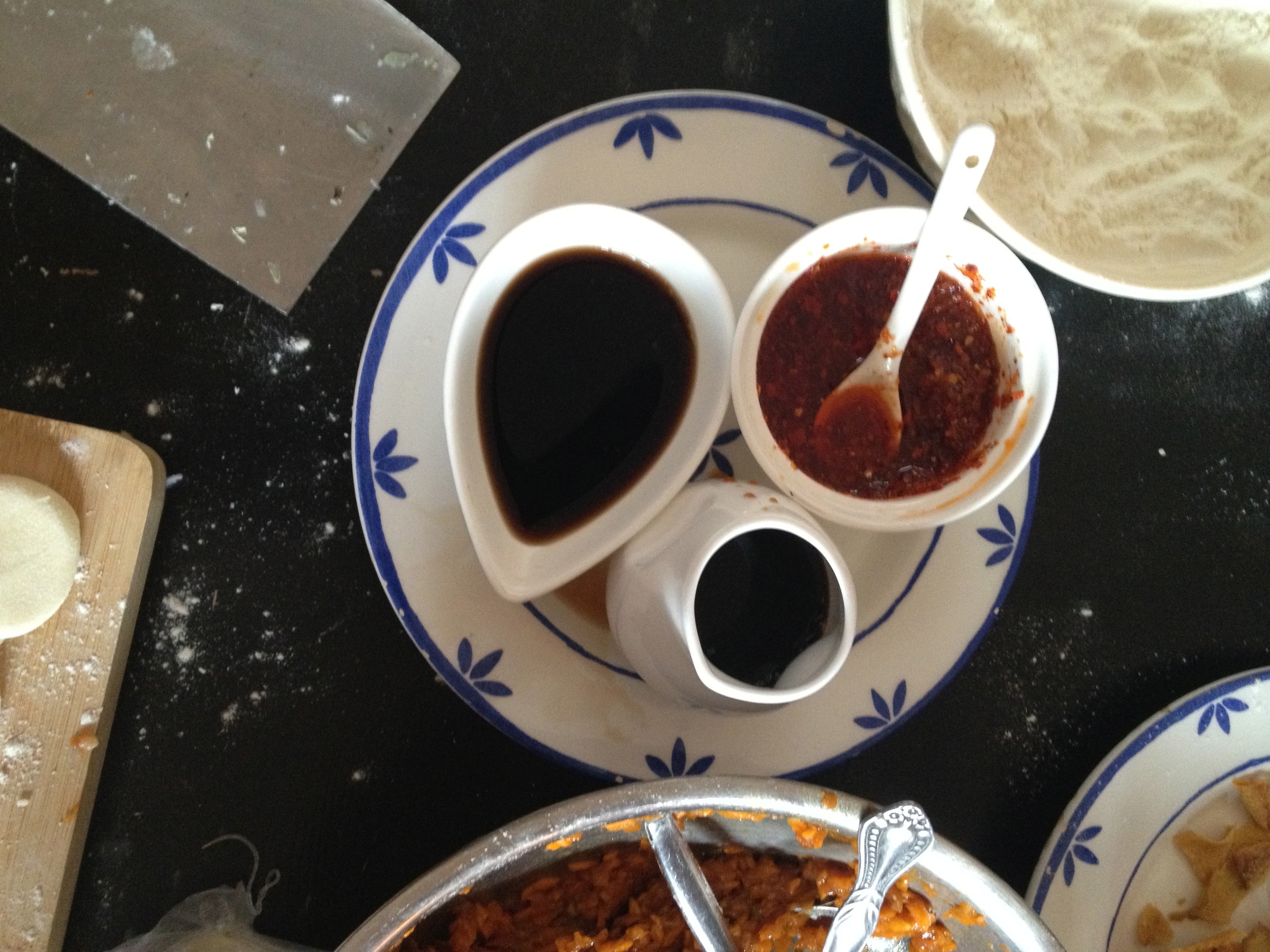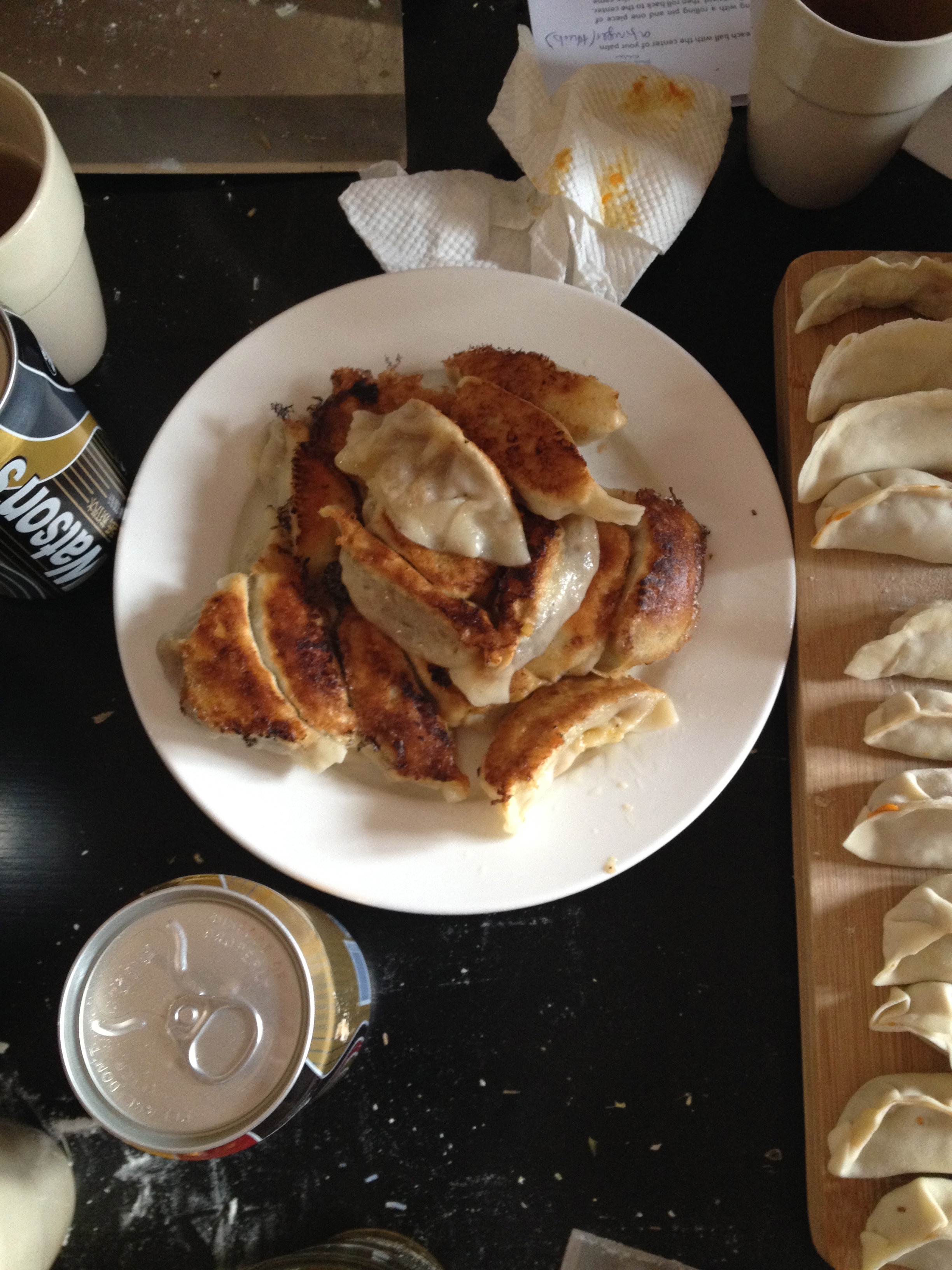Today was a bucket list kind of day.
I woke up and hopped in a taxi headed back to the Gulou district, where I had just been the night before. I was on my way to a cooking class at the Black Sesame Kitchen (BSK), the cooking school and restaurant founded by Jen Lin-lui. Lin-lui has authored several books on the history of trans-contitental Asian cuisine, covering everything from noodles to stir-fry. Although she no longer teaches or cooks at BSK, she has left behind a cadre of outstanding chefs ands cooks. I was lucky enough to be in Beijing for one of their cooking classes, and learned how to make some delicious dumplings.
After sitting down and introducing ourselves to the other people in attendance, we got to work chopping ingredients for what would become two different types of dumpling fillings. The vegetarian one consisted of mainly smoked tofu, shiitake mushroom, vermicelli, and carrots. The meat one had pork and pumpkin, although other vegetables like cabbage, zucchini and eggplant can also be used. Next, we went to work on the dough, a 4 to one ratio of high-gluten flour to water. High-gluten flour works well for dumplings since it adds to the elasticity and chewiness of the dough. After kneading for several minutes, we wrapped the dough in saran wrap to let it rise, set it aside, and watched as the fillings were prepared by one of BSK's master dumpling chefs. Soy sauce (dark and light), white pepper, chicken bullion, and some special spices were added to the ingredients us students had chopped earlier, to create the two different fillings.
Now that both dumpling components were ready, we were taught the proper dumpling folding technique. I don't want to give away all of the great secrets to these wonderful treats, because I want to encourage everyone to visit the kitchen and experience the cooking class personally, but it was much simpler than I thought to make a perfect dumpling. While the students furiously folded the dumplings, BSK staff set to work steaming and boiling them in preparation for lunch. We feasted on our little creations while we continued to fill and fold future dumplings. After several rounds of fresh potsticker plates were brought out and the omnipresent píjiŭ was finished, the students said our goodbyes and thank-yous.
Once the class was finished, I helped clean up the cooking area and sat down to speak with Michelle Tang, the General Manager of BSK. We spoke about the cultural differences between Western and Chinese restaurants, specifically in terms of the reception of female chefs and cooks. According to Tang, in China, there is little emphasis on the identity of the chef who is making the meal. For example, one does not go to a restaurant specifically to eat because that particular chef is cooking, but because the food itself is reputable. Tang mused that this has to do with the lack of honor reserved for cooking-- for the Chinese, its a means to an end, a vocation. In China's culinary world, the anonymity truly lets the food speak for itself.
Dumpling making is traditionally a woman's job, whereas noodle preparation falls into the man's domain. Tang explained that despite their tastiness, dumplings don't have the level of esteem as noodle or meat dishes, and are considered the Chinese equivalent to mashed potatoes or meatloaf-- nothing special. Traditionally women occupy the front of the house and men are in the kitchen in Chinese restaurants with larger staff, but smaller "hole in the wall" or food cart type restaurants commonly employ an equal amount of men and women. This relates back to her point on the utilitarian aspect of cooking in Chinese culture. It was a short, interesting conversation that ended with Tang's recommendation of Jen Lin-Lui's "Serve the People," which describes Lin-Lui's experience as a woman in various Chinese restaurants.
Next I met with Cat Nelson and Maggie Zhang, two women who work for True Run Media and The Beijinger. Nelson is the Food and Beverage for The Beijinger, and Zhang is an Account Executive. Both women spoke about their favorite restaurants in Beijing, their interaction with Chinese cuisine as both foreigners and locals, and the transitionary nature of the city's food scene.
Last but not least, I grabbed a drink with the folks behind The Cleaver Quarterly, a soon-to-be quarterly publication covering anything and everything that has to do with Chinese food! The trio have been developing this idea for awhile, and will be launching the inaugural issue Spring 2014.
With Chinese food being the international phenomenon that it is, Jonathan, Lilly and Iain saw an opportunity to create a magazine that features the cuisine in all of its forms-- from American Chinese restaurants in Shanghai, to Beijing's top dumpling chefs. Keep an eye out for their Kickstarter campaign and first print publication!
Tomorrow I head to Shanghai, find Oregon's Rogue IPA on tap at a Chinese food restaurant, and live to tell the tale!



